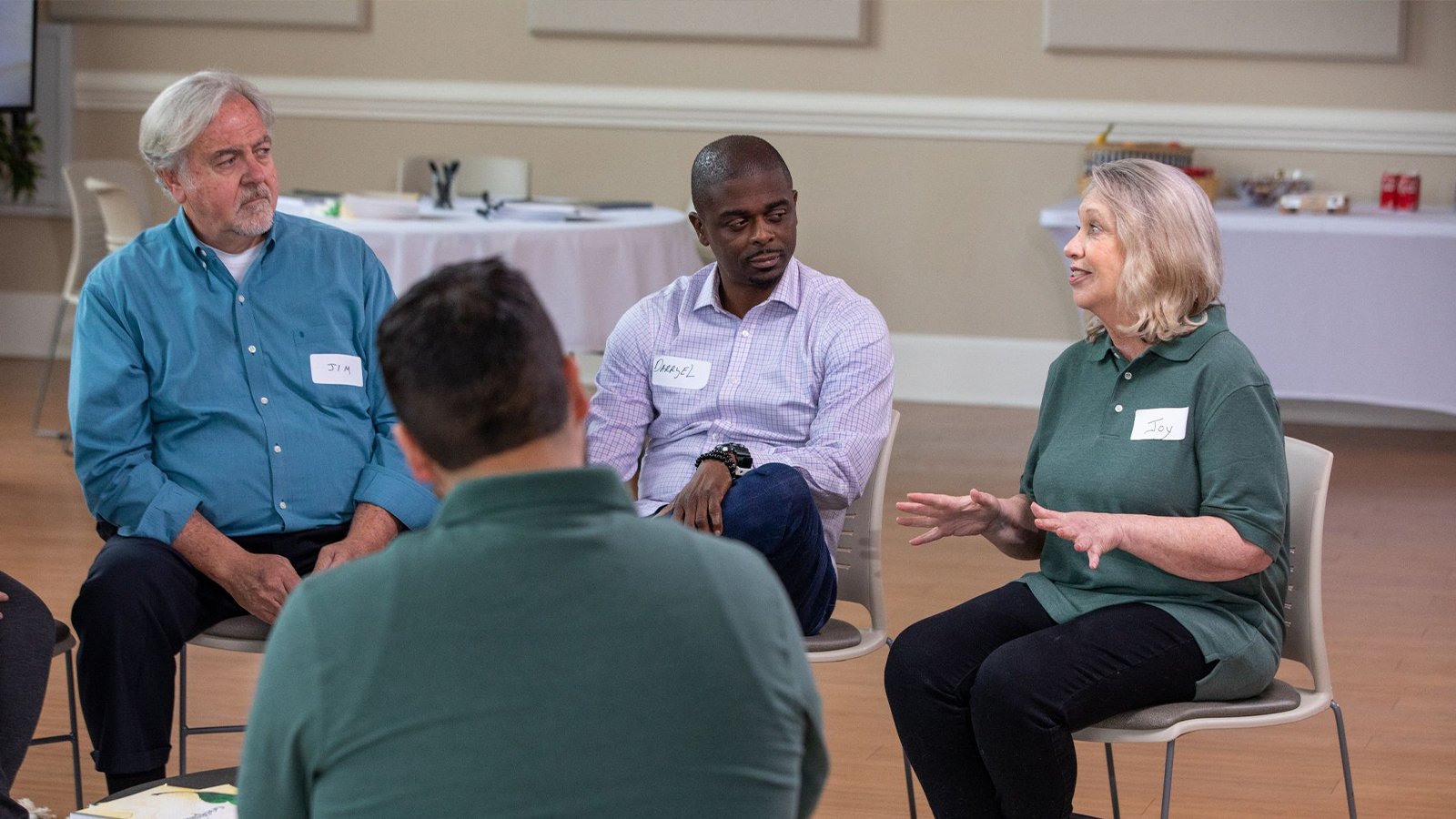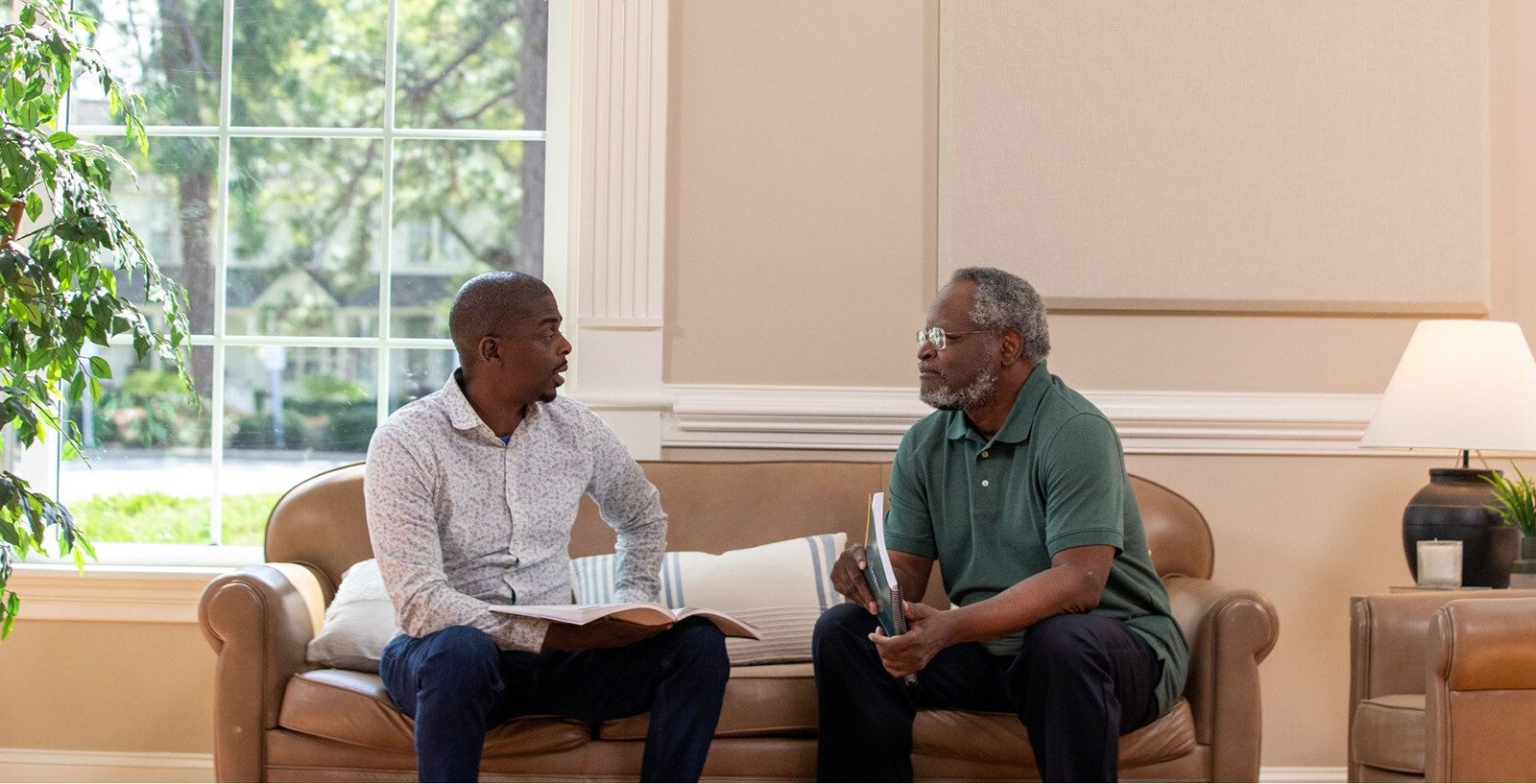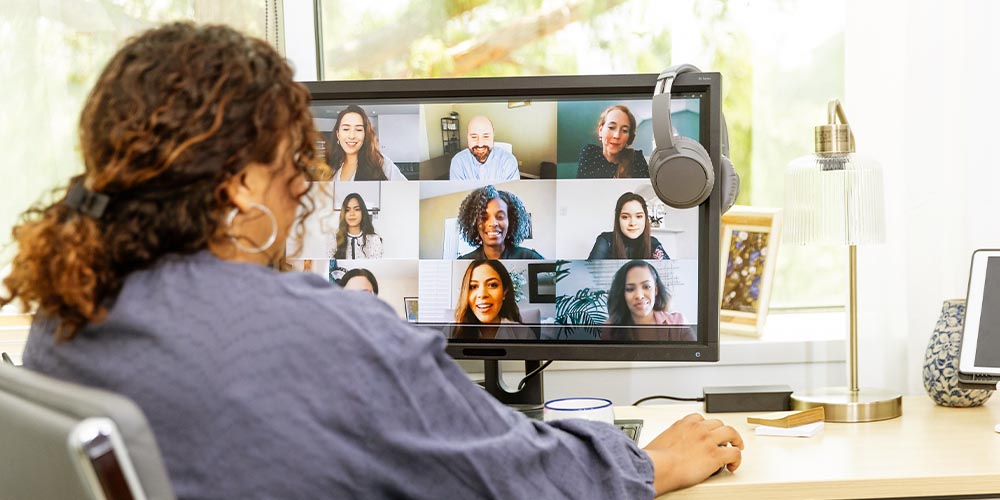Legacy of Love: Honoring Lost Loved Ones Through Ministry

Turn your pain into purpose
When Beverly Burton lost both of her sons in a tragic car accident in 2002, her world shattered. “They were brothers, friends from birth … the driver was the only survivor,” she says, remembering that fateful Good Friday.
Years later, what began as a season of unimaginable sorrow turned into a powerful ministry. Beverly found her way into GriefShare, first as a participant and eventually, unexpectedly, as a leader. “I went through the GriefShare program and my minister asked me at the time if I would co-facilitate,” she says. “At first, it didn’t feel like leading.”
A ministry born from memory
After moving away and returning to Winston-Salem, her GriefShare leaders invited Beverly to lead GriefShare again. “I sort of laughed at her,” she says of the minister who asked. But through prayer and support, she agreed—and it changed her life.
“You know that you’re doing what God made you to do,” Beverly shared. “It felt like this was a ministry God had called me to do.” Since the fall of 2017, she has been leading GriefShare groups—faithfully walking alongside grievers and honoring her sons’ memories with every session.
The longing to remember
Many people who grieve deeply wrestle with the question: How do I go on while keeping my loved one close? Beverly understands that longing. “GriefShare to me is … a way of honoring my boys’ memories,” she explains. “Knowing that I’m helping others … it doesn’t ever go away. It is a lifelong journey when you’ve had such significant loss.”
In her experience, GriefShare became more than just a program—it became a sacred space. “I’ve had people tell me that they’ve felt like they can say things in that room that they can’t say even to some of their closest family members,” she recalls. “That’s what I want to be able to continue to provide … a safe space.”
Helping others while keeping the memory alive
GriefShare gave Beverly the structure, training, and community she needed to step into leadership. “God continues to show me miracles in so many ways … He can truly bring beauty from ashes.”
Her groups have grown, both in terms of number and diversity. “I typically have anywhere from five to 16 folks … most of the people who come are not members of the church,” she says. The reach of her ministry now extends into the broader community, and even to college campuses, with one of her participants launching a GriefShare group at Wake Forest University.
Not closure—but legacy
For Beverly, GriefShare is not about moving on—it’s about honoring what was lost while helping others heal. “This isn’t closure. It’s continuation,” her story suggests. “I do it … to help others who are grieving. Because that’s how I keep the legacy of my boys alive.”
Her message to others who are unsure whether they’re ready to lead is simple: You don’t have to be a grief expert—you just have to be willing. “We can’t compare our griefs … but what we can do is create a space where people feel safe and seen.”
Learn how leading a group can become your tribute
If you’ve been searching for a way to turn your heartache into something meaningful, Beverly’s story offers hope and direction. “This room,” she says of her GriefShare sessions, “it just feels holy.”
Maybe it’s time for you to take that step and explore leadership. Learn how to start your GriefShare group today.
Watch Beverly’s full story below:


